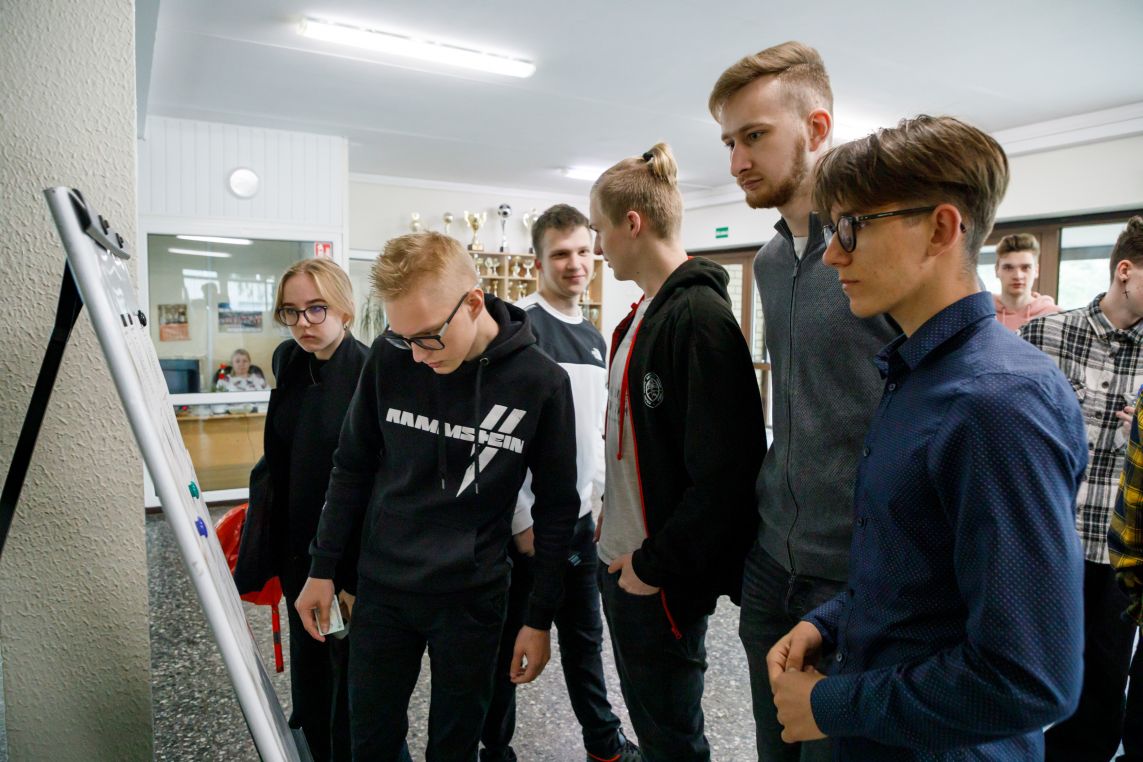- June 24, 2023
- 210
School matura exam in the mother tongue is over

On June 22, students in Lithuania took the matura exam in their mother tongue. This year’s Polish language exam was the last test taken at the school level, because next year’s students will take the exam in Polish as a state language. The school exam in Polish literature and language was taken by 752 candidates.
The school exam in Polish is not obligatory at the Lithuanian matura exam, but students approach it out of a sense of internal duty. It is also a stage for them in a natural way, crowning 12 years of learning this subject at school.
– I am Polish and Polish is my native language. I think that I should pass it well – in an interview with “Kurier Wileński” emphasizes Daniel Aleks Marcinkiewicz, a high school graduate from the Władysław Syrokomla Junior High School in Vilnius. – While writing the essay, I chose a topic close to me concerning the protagonists of dramas in relation to important life choices. I immediately had an answer in my head, a plan, what literary examples and authors I could refer to, as well as what arguments to give,” adds the high school graduate.
As he says, the tasks in the written part of the exam were not difficult for him. They concerned, m.in the works of Wisława Szymborska, a subject with which Daniel is well familiar, because he also prepared it in the oral part of the exam.
— The essay topics were also very good — he says. — I managed to complete the tasks in four hours.
Polish as a state exam in a year
In a year, after more than 20 years break, the Polish language exam will return to the list of state exams. According to the new model of secondary education, there will no longer be school exams at the Lithuanian matura exam. Students of the third grade of lower secondary schools from schools with Polish as the language of instruction, who learn according to the amended program, are already preparing for the state matura exam in the mother tongue. In the spring of this year, they proceeded to submit the first stage of the matura exam, i.e. a mandatory intermediate test in Polish language and literature. In a year’s time, during the matriculation session, they will pass the second part of this exam.
– It is a pity that I did not take the exam in Polish as a state language this year – our interlocutor does not hide his disappointment. – I think that I would need it very much when recruiting for studies in Poland, because some universities need an assessment in this subject.
According to the National Agency of Education, 752 candidates took the matura exam in Polish, 408 students took the Russian language as their mother tongue, and 5 candidates took the Belarusian language exam.
The matura exam in Polish at the school level consisted of three parts. The first, oral part, the students passed earlier. In the second and third written parts, students performed comprehension tasks and wrote an essay or interpretation of the text. Secondary school graduates had to write an essay of 250-400 words or interpretation of the text according to one of the three topics presented. The duration of the exam was four hours.
Topics of written works
Essays
- “A man who has not tasted his tears is not a real man” (W. Szymborska). Consider the thought of the poetess, recalling selected literary examples.
2. Expand the thought of Czesław Miłosz “Small are the people, great are their works “. Refer to examples from literature and the lives of famous personalities.
- Protagonists of dramas in the face of important life choices. Present their fate and evaluate their actions.
Interpretations
- Interpretation of Władysław Syrokomla’s poem “The Old Clock”.
- Interpretation of a fragment of Czesław Miłosz’s essay “Dictionary of the Vilnius streets”
Translated by Patrycja Szwak within the framework of a traineeship programme of the European Foundation of Human Rights, www.efhr.eu.

